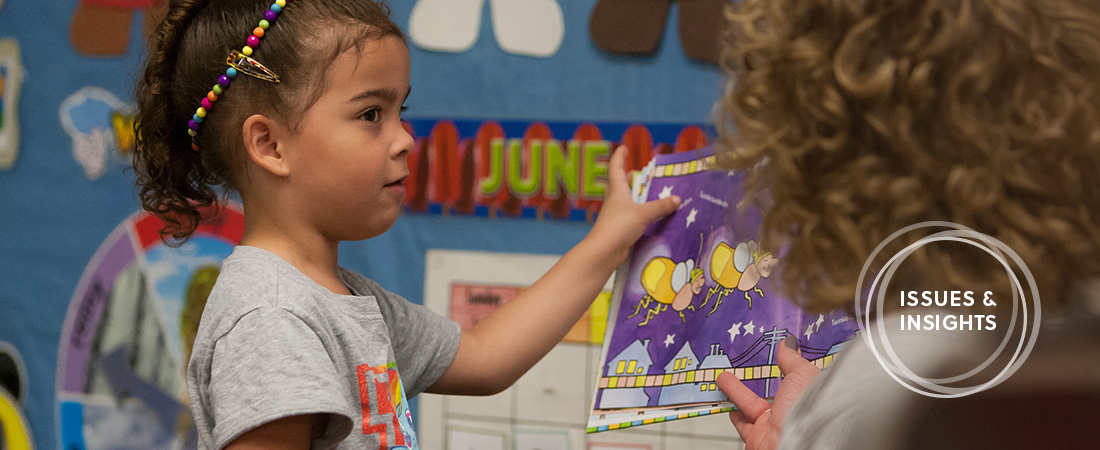Why Does Social Emotional Learning Matter?

Preschool is a time of rapid growth for young children. Not only are they studying letters and numbers, but they are also developing social and emotional skills—skills like making friends, sharing toys, and listening to the teacher—that they will need to succeed in school and in life.
For 20 years, EDC’s Karen Cairone has been helping early childhood educators build social emotional learning into the school day. She is also a consulting editor for the National Association for the Education of Young Children’s Young Children Magazine. Here, she talks about the importance of social emotional learning in the early years and why more schools are teaching these skills now.Q: Let’s start with the basics. For preschoolers, what kinds of skills fall under the umbrella of “social emotional learning?”
Cairone: Generally speaking, social and emotional skills are what allow children to make friends, follow directions, and to be comfortable in a classroom. There are hundreds of social and emotional skills that teachers model and teach throughout the preschool years. But to whittle these into three main categories, I’d have to go with relationship skills, self-control/regulation, and initiative.
A lot of the work that preschool teachers do serves to bolster these skills. Relationship skills include the ability to get along with other children, make and keep friends, and enjoy playing with others. Self-regulation is all about being able to be patient, control strong emotions, and take turns. Finally, teachers look for initiative. Initiative is both a child’s ability to advocate for his or her needs, as well as his or her ability to find activities of personal interest in the classroom.
Q: Why is social emotional learning important early in life?
Cairone: These basic skills set children up for success. In order to learn a new math skill, for example, you first have to be able to focus. It’s really hard to learn if you are not comfortable paying attention and taking turns in a classroom setting!
Q: Shouldn’t kids learn many of these skills at home?
Cairone: Absolutely. But if you have a family that is struggling to meet basic needs—whether economic or emotional—then the parents may not be focusing too much on things like sharing and being patient at home. So it’s important for the school to teach those skills. This work is not undone when children leave the classroom; it actually gives children more skills to use at home. And in best case scenarios, you have families reinforcing and teaching these important social and emotional skills in the home environment as well.
Q: For a long time, schools seemed to emphasize academics over social emotional learning, but that seems to be changing now. Why do you think this change is occurring?
Cairone: I think it has to do with increased concern about bullying, suicide, and school violence. People are paying more attention to the importance of social emotional learning now; they are realizing that these skills matter. The goal of teaching social and emotional skills is to build students’ mental health and resilience—so that as they grow, they can adapt and handle what comes at them. Students can have a hard time if they lack these basic mental health skills.
Another reason is funding. The passage of the Every Student Succeeds Act provides opportunities to get creative about funding social emotional learning, so districts are able to take advantage of that. It’s put a bigger spotlight on social emotional learning than in the past.
Q: Is there any research that shows social emotional learning can have a positive impact on children’s lives?
Cairone: There is. Explicitly teaching social and emotional skills can help students become more resilient, which helps them deal with the effects of trauma or adverse events in their lives. These positive effects last well beyond a single school year. Some research has even shown that teaching social and emotional skills leads to better academic achievement and improved behavior.
Q: Are you encouraged by this greater focus on social emotional learning?
Cairone: Yes. Parents and educators are getting the message that these skills matter. And that message is reaching the upper grades, too. In one district I’m familiar with, every student in grades 5 through 12 is reading the book Wonder this year. It provides a common framework for teachers in the school to emphasize kindness and respect for differences. These are core social emotional values! So I think examples like this show that educators are taking social emotional learning seriously. It’s an uplifting trend.
